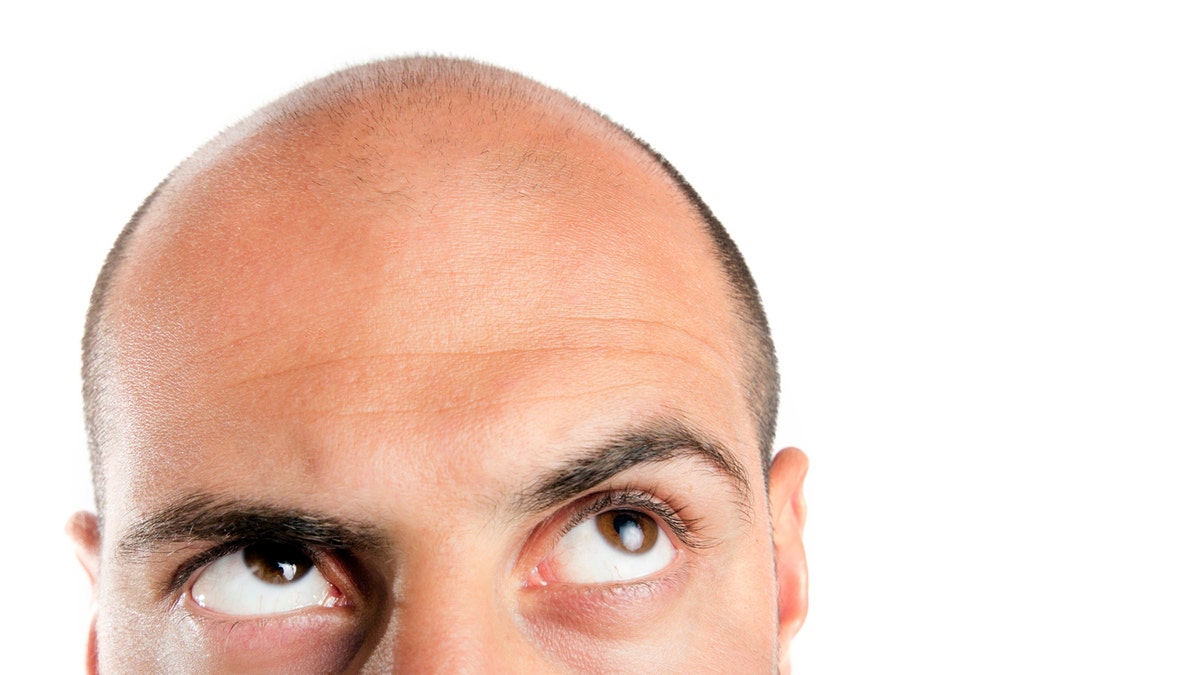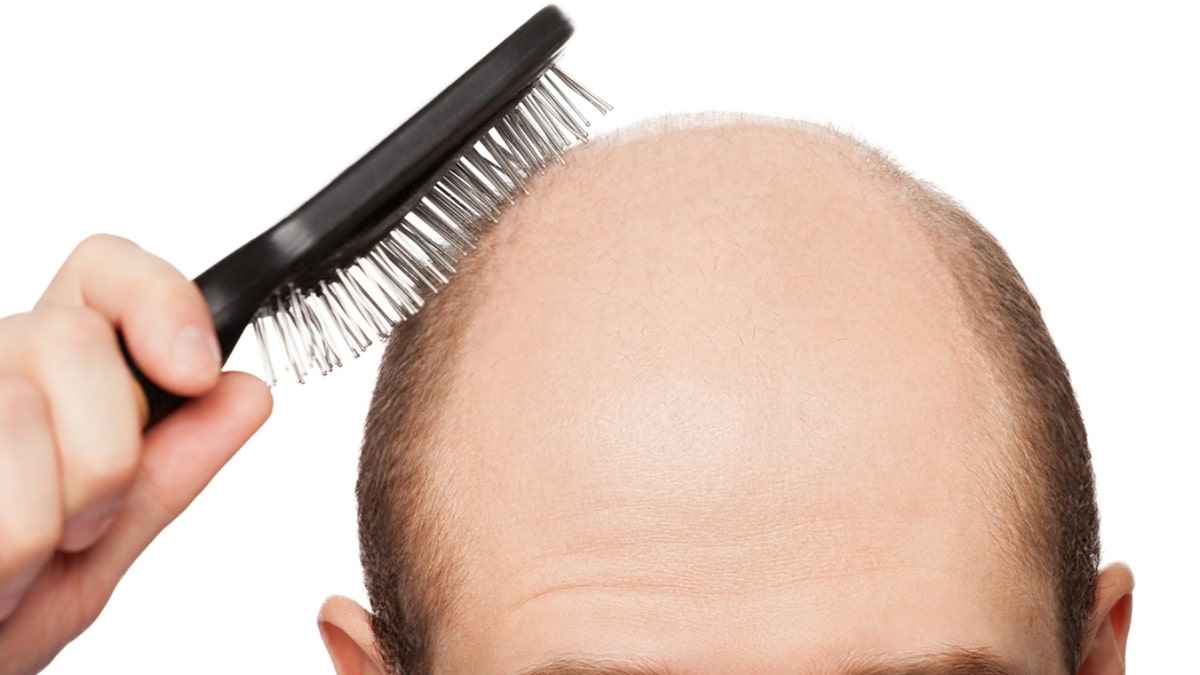Kat Timpf: Should women embrace the day their hair turns gray?
'Gutfeld!' guests discuss a report that found many women returning to the workplace are embracing their gray hair as a symbol of empowerment.
Scientists in Japan have successfully grown mature hair follicles in a laboratory — something researchers hope can lead eventually to effective treatments for baldness and other conditions.
A team of scientists from Japan's Yokohama National University published the study in the journal Science Advances on Friday.
Their journal article, titled "Reprogramming of three-dimensional microenvironments for in vitro hair follicle induction," described their use of embryonic mouse cells to create a hair follicle that grew 3mm (approximately 0.12 of an inch) over 23 days.
THESE TREATMENTS CAN HELP COVID-19-RELATED HAIR LOSS, DOCTORS SAY
The scientists said in a press release that they believed their research "could prove valuable for better understanding of hair follicle induction, for evaluating hair pigmentation and hair growth drugs, and for regenerating hair follicles."

The new developments out of Japan marked the first time a mature hair follicle had been grown in a lab, researchers said. (iStock)
"Our next step is to use cells from human origin, and apply for drug development and regenerative medicine," Junji Fukuda, a professor and member of the faculty of engineering at Yokohama National University, said in the release.
The study marked the first time a mature hair follicle had been grown in a lab, they noted.
"This new understanding of how cells interact can hold much larger implications for understanding and correcting defects in other tissues …"
While the development holds "great potential" for those with baldness, there are other reasons to be excited about this research, Dr. Michael Kinch, a cell biologist and cancer researcher based at Long Island University's Center for Research Innovation in Biotechnology, told Fox News Digital via email.
DRUG TO TREAT ALOPECIA APPROVED BY THE FDA
"This new understanding of how cells interact can hold much larger implications for understanding and correcting defects in other tissues that contain similar types of cells," said Dr. Kinch, who was not involved in the research, "ranging from diabetes (where similar interactions control insulin production) to cancer."
Kinch said that he had studied the roles of epithelial-mesenchymal cell interactions earlier in his career — and that "a better understanding of these relationships likely determines the potential that cancer might arise," which could lead to a better cancer progression.
This, however, will take a considerable amount of time. "The field is progressing, but not fast enough," he said.

"This research shows how far we have come with manipulating embryonic cells and the breadth of medical applications this technology can have," said one internist in the Washington, D.C., area. (iStock)
Dr. Ken Zweig, an assistant professor of medicine at Georgetown University and George Washington University medical schools in Washington, D.C., told Fox News Digital, "The research is interesting, but I would think we are a long way off from this being a cost-effective application."
He added, "Using stem cells is controversial and expensive, which limits this from having widespread availability any time soon."
Zweig also noted, "Plus, we already have relatively cheap, safe and somewhat effective treatments for hair loss already, including Rogaine, Propecia and hair transplants."
"Other advancements in hair regrowth have shown promise."
However, he also said, "the technology is very exciting — this research shows how far we have come with manipulating embryonic cells and the breadth of medical applications this technology can have."
Micro-injection of molecules
While lab-grown hair follicles are likely years away from reaching a bald person's head, as the researchers note, other advancements in hair regrowth have shown promise.
A micro-injection of a molecule called "SCUBE3" triggered hair growth in mice that had dormant hair follicles, according to University of California, Irvine researchers, who published their findings in the medical journal Developmental Cell in June.
The molecule even worked on human hair follicles that had been grafted onto mice, the study reported.
However, similar to the lab-grown follicles, it will likely be years before humans will be able to receive these treatments.
Medication for hair loss
One thing that is available in present day, albeit without FDA approval for hair loss, is a pill form of the drug Minoxidil.
WHY CAN CHRONIC STRESS RESULT IN HAIR LOSS? NEW RESEARCH PROVIDES CLUES
While Minoxidil is approved by the FDA for topical use for the prevention of hair loss, scientists discovered years ago that a low-dose oral version of the drug is also effective at preventing hair loss and encouraging regrowth, The New York Times reported back in 2018.
Minoxidil is the active ingredient in Rogaine, a medication for hair loss that has been approved by the FDA since the late '80s, the same publication said.

For many men, hair loss is tied to masculinity issues, according to aesthetics nurse practitioner Wendy Vaughn. (iStock)
A study involving high doses of oral Minoxidil for high blood pressure resulted in many patients also reporting increased hair growth, they noted.
Also, a 2017 study published in the International Journal of Dermatology found that "once-daily capsules containing minoxidil 0.25 mg and spironolactone [a diuretic] 25 mg appear to be safe and effective in the treatment" of female pattern hair loss."
CHEMICAL HAIR-STRAIGHTENING PRODUCTS MAY INCREASE UTERINE CANCER RISK: NIH STUDY
Dr. Rodney D. Sinclair, a professor of dermatology at the University of Melbourne, found that of the 100 women in the study, only eight experienced "generally mild" side effects.
Of those eight, only two elected to cease treatment, according to the study.
‘Tied into masculinity’
Baldness is more than just losing hair, Wendy Vaughan, an aesthetics nurse practitioner based in Woburn, Massachusetts, told Fox News Digital via email.
For many men, their hair "is tied into their masculinity," she said, while some women with thinning hair "feel self-conscious and feel the need to try and address the issue."
Treatments such as lab-grown follicles would be a "game changer" for those who are upset about their thinning hair, she said.
CLICK HERE TO SIGN UP FOR OUR LIFESTYLE NEWSLETTER
Vaughan cautioned that existing hair loss treatments can sometimes come with severe side effects.
"Propecia’s active ingredient (finasteride) has the ability to block the hormone responsible for male pattern baldness, but it can also have some damaging effects pertaining to a man’s sexual health," she said.
CLICK HERE TO GET THE FOX NEWS APP
"Most commonly," she said, is "loss of libido and erectile dysfunction."
Amy McGorry contributed reporting to this article.


